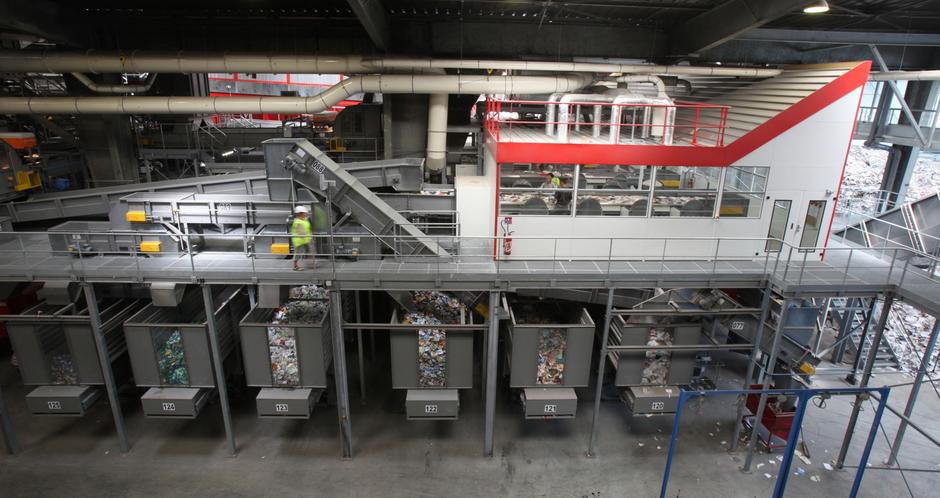Veolia devises a wide range of innovative solutions to help industries and municipalities in waste sorting, recycling, reusing and building of operational facilities.

Paper sorting and recycling
Veolia takes care of every stage of paper/cardboard recycling, from its collection to sales and marketing.
1. A wide range of waste
Recyclable paper and cardboard comes from all types of commercial and industrial companies, ranging fromr printing shops, commercial packaging waste to municipal waste, with separation of household waste at the source. In practice, paper can be recycled up to about five times and cardboard up to 10 times.
2. Selective sorting by category and quality
Veolia recycles materials in many European countries. Once collected, the paper and cardboard are transferred to sorting centres and then separated by category and quality. For materials of substandard for recycling, they will be eliminated during the process. The remaining materials will be balled up and sent to paper manufacturers or exported to other countries for recycling.
Veolia has many years of experience and widely recognized expertise in the field of waste paper and cardboard recycling, and thus provides quality assurance of its recycled materials.
3. A growing global market
Recovered cellulose fibres (RCF) now makes up about half of the newspapers and cardboard produced in the world. Waste paper as secondary raw materials can be used to make paper pulp.
Metal sorting and recycling
More and more metals are now being produced from recycled metals. Certain types of waste are resource pools for metal recovery.
1. Metal-rich waste
Industrial and household waste, obsolete vehicles and end-of-life products contain ferrous metals as well as non-ferrous metals such as aluminium, copper, lead or zinc.
2. Dedicated facilities
Veolia recycles waste with ferrous and non-ferrous metals in dedicated facilities. The metal is recovered through different methods, namely dismantling, separating, shearing, cutting and compression techniques; and chemical and electrochemical techniques. The secondary raw materials are then sold to ferrous and non-ferrous metal producers.
3. Two commercial channels
Homogeneous batches of metal are sold directly to the steel industry while mixed batches are sold for further recycling, most of which will be reused to produce steel and non-ferrous metals.
Other materials sorting and recycling
Veolia recovers many types of waste besides paper and metal, and at the same time produces alternative fuels from the hard-to-recycle waste.
1. Wood, plastic and glass recycling
Wood, plastic and glass waste can be used to produce secondary raw materials. Woodworking plants especially reuse crushed wood; pellets and powder made from plastic can be employed in the manufacture of automotive parts such as crankcases and door panels. Glass recycling provides a second life to household waste such as bottles or yoghurt containers or industrial flat glass and high-performance glass packaging.
2. Production of alternative fuel
Veolia produces Refuse Derived Fuel (RDF) from non-recyclable paper and cardboard, dirty wood and broken glass. RDF is used to power various heat treatment plants, including cement factories, heating plants and industrial boilers.

